Nurses are under a tremendous amount of stress. They face challenges every day, as they take care of patients, juggle schedules, and work to ensure that everyone stays safe and healthy. Effective nurse retention strategies can help in preventing nurse burnout and reducing the staff turnover rate.
Turnover is Costly
The average financial cost of turnover for each nurse is estimated at between $37,700 and $58,400. The costs can add up quickly as more nurses leave the profession. Almost a third of new graduate nurses will leave during their first year in a practice or hospital setting. That rate increase to almost 60% in their second year.
Nurse Burnout is Dangerous
Likewise, the cost of nurse burnout is high, although in different terms. Research has shown that, in general, about one in five people can suffer from some form of mental health issue at work. Not only does this affect the individual’s health and well-being, but in the healthcare field, it can also impact patient safety.
Burnout has a direct impact on a nurse’s absenteeism and fatigue, and it can cause a significant decrease in the quality of their work. Nursing is one of the most exhausting professions, given the workload and the scheduling demands. The nurse is expected to take care of others with patience and empathy, in a highly stressful environment.
Nurses are expected to find a balance in their lives and their work, but often they are simply overwhelmed by the stress. The mental health, and sometimes physical health, issues that arise as a result can negatively impact their work and their patients.
Nurse Retention Strategies
When a healthcare organization wants to reduce its turnover costs, it can implement certain nurse retention strategies.
Recruit strategically. Take the time to attract the best-fitting nurses for the organization. Hiring for behavioral competencies as well as for clinical practice knowledge and skills can help ensure a better alignment of values between the nurse candidate and the organization. For example, personality attributes such as honesty, accountability, and conscientiousness can help determine the candidate’s likelihood of success, lowering the incidence of turnover.
Recognize longevity and reward achievement. A celebration, regardless of whether it is a major event or a mention during a meeting at the beginning of the shift, can emphasize a nurse’s value to the organization. Knowing they are appreciated can increase the likelihood they will stay in their role.
Offer flexible schedules. When a nurse is overworked, they are more inclined to look for another position that offers them more flexibility. A healthy work-life balance is key to improving nurse retention. Hiring additional help, such as an after-hours nurse triage service, can relieve the nursing staff of some of the stress of putting in extra hours.
Ways to Prevent Nurse Burnout
Preventing nurse burnout is critical for the individual as well as for the organization as a whole. It is also important for patient safety. Strategies to reduce burnout focus on improving the nurse’s mental and physical health.
In one study, a resilience training program that offered professional techniques for dealing with cognitive behavior and for increasing resilience to the challenges of nursing proved effective in reducing burnout in nurses. Resilience was taught and strengthened through coping skills training sessions.
Encouraging stress-reduction techniques, such as meditation, can also be beneficial. With meditation practice, the individual’s stress level becomes easier to manage. Yoga is another practice that can reduce emotional exhaustion and, subsequently, reduce burnout in nurses.
In addition, when the nurse’s work environment is more satisfactory for the individual’s needs, the turnover rate as well as burnout rate can be reduced. A work schedule that encourages life-work balance has proven beneficial as well. Securing after-hours nurse triage services for the organization can ease the burden on staff, improving the health and well-being of the nursing staff as well as patients.
Implement Nurse Retention Strategies in Your Practice
At IntellaTriage, we can help you reduce nurse burnout and staff turnover as well as improve patient satisfaction in your practice. We offer the nurse triage solutions you need, tailored to your practice and your patients. Our triage nurses provide your patients with the highest quality of care, day or night. We also capture all referrals quickly, increasing your topline revenue and your patient’s healthcare outcomes.
To learn more about IntellaTriage’s revolutionary approach to nurse triage service, contact us today.
Contact Us for a Consultation
Ready to optimize your triage process? Reach out to us today for a consultation tailored to your needs. Let’s elevate your patient care together.
More From The Blog
Patient needs don’t end with the workday and care shouldn’t either. But sustaining continuous care across all hours is far from simple. The real challenge for home-based care organizations is not in recognizing this truth, but rather in designing systems that can support continuous, clinically sound care across all hours and the full episode of [...]
Post-acute care has been shaped these past years by by workforce shortages, evolving regulatory and payment models, and growing expectations around patient experience. Provider organizations now face a critical inflection point. The decisions leaders make in the next 12 months will materially affect quality care, organizational growth, staff experience, and financial stability for years to [...]
Post-acute triage call volumes continue to rise across hospice and home health, driven by higher census, caregiver anxiety, increased acuity at home, and symptom flare-ups. Field nurses are stretched thin, documentation requirements increase regularly, and families expect and deserve immediate clinical guidance, not voicemail. The confluence of these factors mean agencies are paying closer attention [...]









